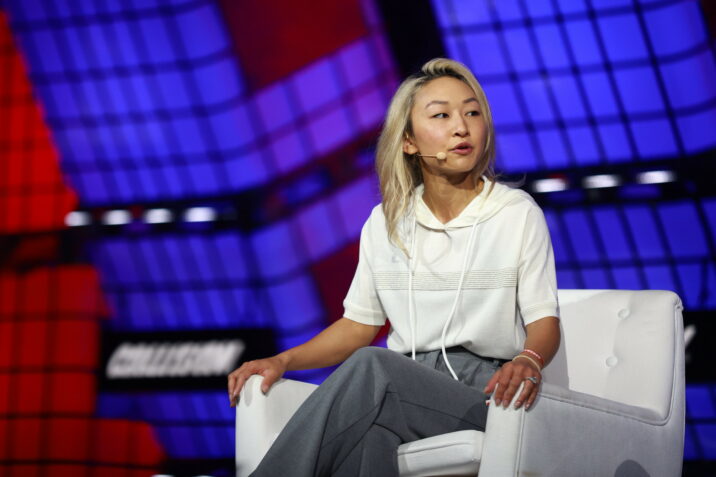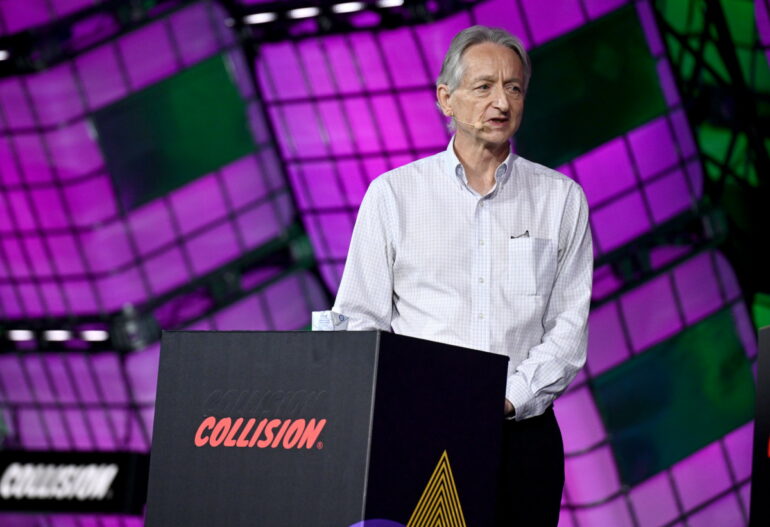Conversations about the promises and perils of AI took centre stage in Toronto at the tech conference Collision. Leading venture capitalists (VCs) and top AI experts grappled with AI’s explosive rise in recent months. However, these two groups disagreed on how the potential risks of innovation amid increasingly powerful models like OpenAI’s ChatGPT, Google’s PaLM, image-generation programs like Midjourney, and the countless apps and startups using these AI tools.
Some experts raised concerns in a series of recent open letters, lobbying for a pause on development of the tech to allow infrastructure and regulation to catch up.
Among these is the extinction letter, a one-sentence public statement that warns about the existential risk of AI should it be adopted without an adequate regulatory framework.
“Mitigating the risk of extinction from AI should be a global priority alongside other societal-scale risks such as pandemics and nuclear war,” the full statement reads.
“It’s not just science fiction. It’s not just fear-mongering. It’s a real risk.”
— Geoffrey Hinton
One of the signatories is Geoffrey Hinton, a British-Canadian cognitive psychologist, computer scientist and neural-network pioneer widely considered to be the godfather of AI. He reiterated these concerns on stage during an event at Collision.
On the other hand, investors at Collision are incredibly bullish on AI. Nearly three-quarters of respondents to a recent Pitchbook investor survey indicated they had invested in AI. Moreover, Kanu Gulati from Khosla Ventures and Jordan Jacobs from Radical Ventures both talked about how they were incredibly optimistic on their holdings in OpenAI and CohereAI respectively at a panel on the Venture stage at Collision.
Godfather of AI Sounds the Alarm at Collision
Hinton spoke in detail about the dangers of artificial intelligence.
Some specific concerns he cited were bias and discrimination, misinformation, and what he called “warring echo chambers due to the big companies wanting you to click on things that make you indignant.”
Hinton then touched on the concern encapsulated in the extinction letter–the idea that AI systems could become more intelligent than humans, and create “goals of their own.”
“They may well develop the goal of taking control, and if they do that, we’re in trouble,” Hinton said at Collision.
“It’s not just science fiction. It’s not just fear-mongering. It is a real risk we need to think about, and we need to figure out in advance how to deal with it,” he said.
"I think its important that people understand it's not just science fiction; it's not just fearmongering" – the Godfather of #AI, @geoffreyhinton, speaking about the risks of AI on Centre Stage at #CollisionConf pic.twitter.com/u3iM0LO4hP
— Collision Conf (@CollisionHQ) June 28, 2023
Leading VCs say AI concerns are overblown
Prominent VCs did not share Hinton’s concerns. Sarah Guo, founder of Conviction, and angel investor Elad Gil both downplayed concerns on a panel together on the first day of Collision.
Gil also argued the existential risks of AI are overhyped. He ran down a list of the horrors of the twentieth century that took place well before the advent of AI.
“That was people doing terrible things to other people,” he said. “The claims that AI is somehow going to change the human dynamic for the worse [are] really overblown.” The same argument is raised every time there’s a new wave of technological innovation, he argued.
Guo said something similar by paraphrasing the computer scientist Andrew Ng: “What exactly is the path toward existential risk from AI in any near term? It is like worrying about overpopulation on Mars.”
RELATED: Geoffrey Hinton, Yoshua Bengio warn “risk of extinction from AI” in public letter
Tribe Capital co-founder Arjun Sethi echoed the sentiment in an interview.
There were panicked press reports about the dangers of home electricity a century ago, he said, and it ended up being a massive boon for productivity and lifted people out of poverty. He sees the advent of AI the same way.
“It doesn’t mean you ignore the negatives,” he said, but argued regulation should not be overly focused on averting an event that has a tiny chance of ever coming to pass.
He also said he believes researchers working on AI through a theoretical or speculative lens are not generalists, and their concerns should be taken with a grain of salt.
“I think there’s a large set of researchers [who] believe we wouldn’t get to where we are now. So I’m generally skeptical of researchers that are experts in a given area because their mind is only limited to that specific area,” he said.

Tech founders navigate AI controversy
Aidan Gomez, CEO and co-founder of Cohere AI, recently called the six-month pause letter absurd. But he also shared concerns around the risks of AI. In response to a question on stage at Collision, he said “Hinton is the smartest person I’ve ever met and worked with, and when he talks, I listen.”
However, Gomez said he shares Hinton’s worries about existential AI risk, but differs in his degree of concern.
“There is certainly room for more public discussion around this stuff, away from the existential side and towards the more present immediate midterm,” he said.
RELATED: Cohere announces $270-million USD series C
On June 29 at Collision, Mustafa Suleyman, AI scientist and co-founder of Google’s DeepMind, said in an interview, “I don’t think we need consensus (on how to approach the risks of AI); divergent opinions are essential and inevitable this early in the trajectory of new technology.”
Suleyman said he believes healthy discourse among smart people is a normal process. However, he said he finds AI’s potential implications surrounding “synthetic media generation” and “the information system,” alarming because they could have the power to “destabilize elections and spread further misinformation.” He said he hopes to see a renewed focus on this issue in the next few years.
Additionally, Suleyman shared his thoughts on the existential risks of AI, arguing the looming existential threat deserves some attention, but that people will be less interested in “skynet scenarios” and more in how AI will impact our present reality in the short term.
Currently, Suleyman is leading Inflection AI, which also announced its $1.3 Billion USD raise at a $4-billion USD valuation on June 29.
Feature image courtesy Collision.

